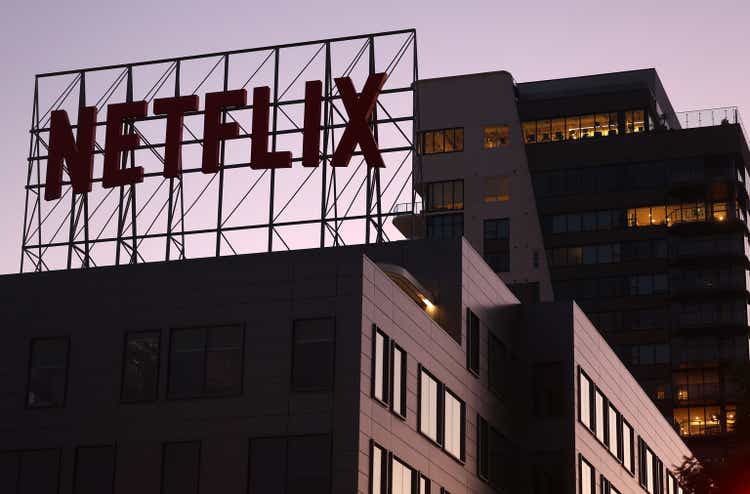India at the G7 Summit: A touch of Himalayas in the Bavarian Alps

By Abhishek Khajuria
Just fresh mountain air and a pollution-free cooling unit with no provision for ACs. This is Schloss Elmau for you. The 5-star hotel in the Bavarian Alps in the south of Germany is the place where leaders of the G7 countries (plus the European Union) will gather this weekend to discuss issues of global importance and likely come up with some initiatives to signal strong intent on their part. In this, they will be joined by the leaders of the countries specially invited, namely, Argentina, India, Indonesia, Senegal, South Africa and Ukraine. It is important to highlight here that India was an invitee country at the two previous summits in Biarritz in France and Carbis Bay, Cornwall in the UK as well.
This summit under the German presidency, is conspicuous by the presence of certain factors which need mentioning. One, it will be the first summit held since the Russian invasion of Ukraine. Two, there seems to be no thaw in the confrontation between the US (and the wider West) and China. Three, though the pandemic has not ended, it finally seems to be subsiding with the hammered economies taking baby steps to come back to normalcy. And four, this summit will be the first one for the leaders of Germany and Japan: Chancellor Olaf Scholz and Prime Minister Fumio Kishida respectively, where the former is undergoing a leadership transition after 16 years of Merkel leadership with the latter still finding its feet in the post-Abe era.
The summit motto “Progress towards an equitable world” is reflected in the choice of the invitee countries which are all emerging economies and are the stalwarts of the aspirations of the developing world while the choice of Ukraine is more in line with the West’s campaign of supporting it to the end against Russia and to highlight its cause at multilateral forums.
However, all eyes at the weekend will be on whether the West is able to affect changes in India’s stance on the War in Ukraine or what certain sections in the media have said, “to woo away” India from Russia. So far, India has refused to side with the unprecedented sanctions the West has imposed on Russia and continued to buy Russian energy at discounted prices. It has also abstained from all the votes at the UN against Russia. It has justified its choices as pursuing its national interest and has also lashed out the criticism of it by the West by pointing at Europe’s purchases of Russian oil which external affairs minister S. Jaishankar said were more in an afternoon than what India did in a month. All the while, it has repeatedly called for cessation of hostilities and diplomacy and dialogue to prevail. It has also provided Ukraine with aid via Poland. Though President Biden of the US initially termed India’s stand as “somewhat shaky”, the tone from the US has softened since then while diplomatic courting of New Delhi has continued by both sides. The G7 invitation certainly seems to be a step in that direction. It highlights New Delhi’s growing stature and importance at this moment of great churn in world affairs.
Though there is a huge chance of the summit being overshadowed by just the Russia-Ukraine War, India must put in its best efforts to make sure that isn’t the case. There are other equally important issues at stake as well, if not more. The importance of India’s invitation should ultimately result in constructive approaches towards other pressing issues of global importance too. The five major goals of the German presidency provide a lot of scope for India to call for major initiatives to be taken with regard to them. These goals are: strong alliances for a sustainable planet, enhanced preparedness for healthy lives, setting the course for economic stability and transformation, sustainable investments in a better future and finally, the slogan of “stronger together”.
Calling for a sustainable planet means enhanced action on tackling climate change where New Delhi should implore the Western world to do its bit in helping the developing and the less-developed world to make progress on the issue which would involve enhancing funding (which the West has shied ever since the Paris Climate Accord) and technology transfers to enable sustainable energy transition. A version of “Just Energy Transition Partnership” specifically modelled for India to enable its transition to a carbon-neutral economy is in the works to be announced at Schloss Elmau which certainly seems to be a step in the right direction. But the buck ought not to stop here and India should become the voice of the rest of its counterparts as well.
Talking of healthy lives and economic stability and transformation, in today’s scenario, these are inextricably linked to the pandemic and its aftermath. Healthy lives can’t be ensured till a major chunk of the world’s population is vaccinated against the novel coronavirus. But Africa remains one of the most under-vaccinated regions of the world. India and South Africa, ever since the pandemic engulfed the world, have been vehemently arguing for patent waivers for vaccines at the WTO and the other multilateral fora. But it is also true that the stand of Europe (along with the big pharma from the US) has proved to be one of the biggest obstacles in ensuring patent waivers. The recently allowed waiver by the WTO is an extremely watered-down version of what India and others actually wanted. India should make good use of the opportunity at the summit to argue for comprehensive patent waivers to protect lives.It is but natural that without ensuring healthy lives, there can be no economic stability and transformation and the vicious circle would continue.
Then, the goal for a better future is again linked to the steps taken in relation to the above two arguments and India, being the largest democracy in the world and soon to be the most populous country as well, is well-placed to make efforts for the same.
The last goal of “stronger together” deserves special attention. Several interpretations can be drawn from it. But in pursuance of this goal, apart from the unity of like-minded countries, it can also be added that, New Delhi could use it to its advantage in the sense that linking this goal to peace and in calling for dialogue and diplomacy to prevail and for an end to the War, it may be able to prevent further isolation of Russia and prevent it from falling into the Chinese embrace. This concurs with French President Emmanuel Macron’s repeated assertion of bringing an end to the War with diplomacy and without “humiliating” Russia. It will also serve New Delhi’s larger geopolitical calculus where if it works as a mediator, relations with the West would remain on an upward trajectory while the historical relations with Russia would also not take a beating. While the former will help in the competition with China in the Indo-Pacific, the latter will lead to India proving a spanner in the works of emerging Pakistan-Russia relations and as mentioned above, prevent Russia from further falling into the Chinese embrace.
Returning to the War once again, the goal of healthy lives should also be seen in the light of the food security crisis engendered by the War and India and other invitee countries have a serious responsibility to work for solutions in conjunction with the West on behalf of the developing and the less-developed world.
Finally, we can also look at another issue which could be paid attention to on the sidelines of the summit at the beautiful Bavarian Alps. Prime Minister Modi should make use of this opportunity to inject a renewed fervour in the India-EU bilateral relationship which is completing 60 years this year and has often been labelled as the one which has ‘underachieved”. Though negotiations on the FTA started a week ago after a 9-year hiatus, much work needs to be done before the agreement sees the light of the day (though recent agreements with the UAE and Australia provide some much-needed optimism). A statement adding on to the recent first-ever defence and security dialogue between the two would also help.
Thus, there is a lot more which India can do for itself and contribute to the wider world through the upcoming G7 summit when compared to what seems on the face of it. The West can certainly expect India to be an effective partner in dealing with global challenges. But it ought to understand India’s strategic concerns as well which New Delhi is not expected to budge from, the most important of which, in today’s context of the Russia-Ukraine War are,India’s historical relationship with Russia (especially when the China factor comes into play) and its strategic autonomy.
(Author is a Doctoral Candidate at the Centre for European Studies, School of International Studies, Jawaharlal Nehru University, New Delhi. Views expressed are personal and do not reflect the official position or policy of Financial Express Online. Reproducing this content without permission is prohibited).
Checkout latest world news below links :
World News || Latest News || U.S. News
Source link



